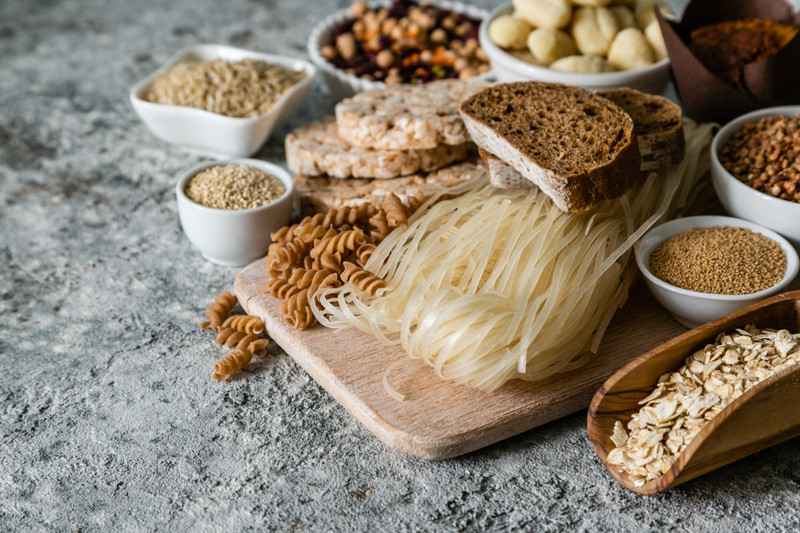Anyone who has celiac disease or gluten intolerance unrelated to celiac disease knows how important it is to follow a gluten-free diet, knowing that the ingestion of gluten – even if not intentional – can have adverse effects on a person’s health and their ability to absorb needed nutrients.
In following a gluten-free diet, a person is advised to steer clear of wheat as well as other grains, such as those used as binding agents in natural remedies like over-the-counter supplements. In doing so, that means missing out on nutrients crucial to good overall health.
Celiac disease is an autoimmune disorder characterized by gluten-induced activity that can harm the small intestine’s lining, thus hindering absorption and use of some nutrients found in foods. Even if a person hasn’t been diagnosed with celiac disease, they still might be dealing with a condition known as “non-celiac gluten insensitivity” which can produce symptoms mimicking celiac disease, such as abdominal pain, diarrhea, constipation and brain fog.
A Gluten Intolerance Diagnosis Might Not Be All Bad
There is some good news in this. First, non-celiac gluten insensitivity doesn’t necessarily have to be a life-long condition. Researchers have found that if you stick to the non-glucose diet for, say, a year or two, it might be worth getting retested to see if it’s necessary to continue.
Another ray of sunshine is the growing availability of gluten-free versions of supplements being produced and offered on the market. Five such natural remedies that are available in gluten-free form are featured below. Like with any natural remedy, if you are thinking of trying any new supplemental product, you are advised to discuss any such use with your physician or other healthcare professional.
Five Gluten-Free Supplements (Among Many Others!)
Ginkgo Biloba: Sourced from one of the world’s oldest tree species, ginkgo biloba boasts centuries-old use grounded in traditional Chinese medical practices for a variety of ailments, deficiencies, and conditions. Its antioxidant properties can aid in combatting inflammation and boosting blood circulation. Its role in stimulating cognitive function is also well reported. Ginkgo biloba can also ease headache (to include migraines), as well as alleviate anxiety, stress, and fatigue.
Ubiquinol (CoQ10): Ubiquinol is a reduced form of CoQ10 (coenzyme G10), and has two extra electrons and hydrogen than CoQ10 has. Otherwise, they are practically identical, with ubiquinoldeemed more suitable for older adults. CoQ10, as is the case for ubiquinol, is an antioxidant that has been closely associated with its apparent benefits in alleviating headaches as well as conditions ranging from infertility to heart health. It’s interesting to note that CoQ10, while not a vitamin, is indeed a nutrient naturally produced by the body and also known for its role in helping our cells produce energy.
Astaxanthin: Astaxanthin is a carotenoid with a vibrant red-orange pigment found in such foods as lobster and salmon. As a potent antioxidant, astaxanthin is a staunch fighter against free radicals, making it a worthy foe for the likes of some forms of chronic disease as well as skin aging and inflammation. Some studies in people have also shown its potential in bolstering brain and heart health, endurance, energy levels and, yes, fertility.
Lycopene: Like astaxanthin, lycopene is a carotenoid, in its case a red one typically found in pink and red foods such as ketchup, watermelon, and grapefruits. Likewise, it is a robust antioxidant that fights against harmful free radicals that can wreak havoc on cells in your body. Lycopene is deemed helpful in warding off chronic conditions such as diabetes and heart disease.
Andrographis: This natural-remedy herb is probably one you have never heard of before, so let us be the first to inform you about this health-beneficial plant – its botanical name is Andrographis paniculata – found mostly in India and China. Although its native constituents have a bitter taste, Andrographis has been used to treat the common cold and sore throat, bolster immune function, and heal infections (ranging from malaria to dysentery). The leaves and flowers are the parts of the plant most commonly used in modern treatment.
Any kind of gluten intolerance can be an obstacle to the freedom of being able to eat whatever foods you choose and still maintain optimal health, so it is always good to know what foods are gluten-free. It’s good to know there are natural herbs and supplement products that are gluten-free, which opens up doors to herb/supplement use perhaps otherwise “hands-off.” Always be proactive about discussing their use with a healthcare professional.

